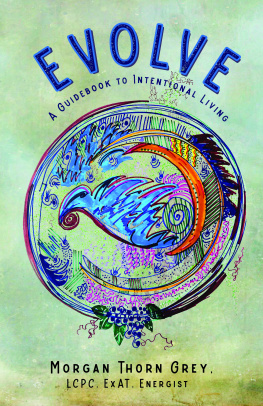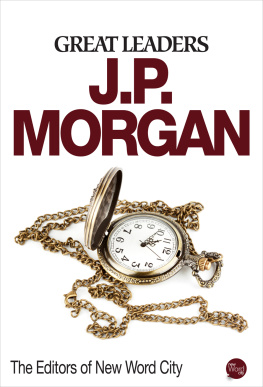The Focus Group Guidebook
David L. Morgan
The Focus Group Guidebook
Focus Group Kit
Copyright 1998 by Sage Publications, Inc.
All rights reserved. No part of this book may be reproduced or utilized in any form or by any means, electronic or mechanical, including photocopying, recording, or by any information storage and retrieval system, without permission in writing from the publisher.
For information:
| SAGE Publications, Inc.
2455 Teller Road
Thousand Oaks, California 91320
E-mail: SAGE Publications Ltd.
6 Bonhill Street
London EC2A 4PU
United Kingdom SAGE Publications India Pvt. Ltd.
M-32 Market
Greater Kailash I
New Delhi 110 048 India |
Printed in the United States of America
Library of Congress Cataloging-in-Publication Data
Morgan, David L., Krueger, Richard A.
The focus group kit.
p. cm.
Includes bibliographical references and indexes.
Contents: v. 1. The focus group guidebook/David L. Morgan. v. 2. Planning focus groups/David L. Morgan. v. 3. Developing questions for focus groups/Richard A. Krueger. v. 4. Moderating focus groups/Richard A. Krueger. v. 5. Involving community members in focus groups/Richard A. Krueger, Jean A. King. v. 6. Analyzing and reporting focus group results/Richard A. Krueger.
ISBN 0-7619-0760-2 (pbk.: The focus group kit: alk. paper)
1. Focus groups. I. Title. II. Series. III. Morgan, David L. IV. Krueger, Richard A.
H61.28K778 1997
001.433dc21
97-21135
ISBN 0-7619-0818-8 (v. 1 pbk.)
ISBN 0-7619-0817-X (v. 2 pbk.)
ISBN 0-7619-0819-6 (v. 3 pbk.)
ISBN 0-7619-0821-8 (v. 4 pbk.)
ISBN 0-7619-0820-X (v. 5 pbk.)
ISBN 0-7619-0816-1 (v. 6 pbk.)
This book is printed on acid-free paper.
99 00 01 02 03 10 9 8 7 6 5 4
| Acquiring Editor: | Marquita Flemming |
| Editorial Assistant: | Frances Borghi |
| Production Editor: | Diana E. Axelsen |
| Production Assistant: | Karen Wiley |
| Typesetter/Designer: | Janelle LeMaster |
| Cover Designer: | Ravi Balasuriya |
| Cover Illustration: | Anahid Moradkhan |
| Print Buyer: | Anna Chin |
Acknowledgments
T he first acknowledgments in this volume have to go to two people who were there at every step of the way: my wife, Susan Wladaver-Morgan, and my coeditor, Dick Krueger. The readers of this kit also owe Susan a thank-you, since she has copyedited every word of every volume. Her direct contribution to this kit has been of great value to both myself and Dick. More personally her support throughout this project has truly made it possible for me to uphold my part of the partnership. That partnership was also greatly aided by having a tremendous collaborator. From start to finish, Dick Krueger has been the steadying force that kept this project on track. His contributions to this particular volume in the kit also require recognition, since I would never have been able to meet our deadlines without his assistance. I recall well the efforts that I went through to get Dick to sign onto this project with me, and I am eternally grateful that we were able to work together.
Several other people deserve thanks for their roles throughout this project. At Portland State University, I would especially like to thank my colleagues at the Institute on Aging, Elizabeth Kutza and Margaret Neal, for all the things they have done, both large and small, that allowed me to pursue this project. At Sage Publications, I would like to thank Mitch Allen, for putting this project in motion; Marquita Flemming, for shepherding it through to completion; Ravi Balasuriya, for his inspired work on the design of these volumes; and Diana Axelsen, for all the effort that it took to get these books out the door on time. The material in this book has also benefited from several courses on focus groups that I have offered. I am especially grateful to the people who made those courses possible, including Sam Lowry and his colleagues at the Professional Development Center at Portland State; Carol Bryant and the Annual Conference on Social Marketing in Public Health at the University of South Florida; and, at the University of Michigan, Duane Alwin and Jim Lepkowski from the Survey Research Centers Summer Training Program.
A project of this scope necessarily draws from many sources. It is tempting to try and thank all of my colleagues who have aided me with the ideas in this book, but, for every name I listed, there would undoubtedly be others that I overlooked. Still, I especially want to thank John Knodel and Kerth OBrien for the dual roles that they have played, as both friends and colleagues in focus groups. Others who made specific contributions to this volume include Al Bernstein, for his good counsel and advice; Paula Carder, who helped get things started; Adam Davis, Lourdes Gutierrez, and Amy Driscoll, who all contributed examples of focus groups in use; Alice Scannell, who was my collaborator on Volume 2; and Brian and Val Oatley, who allowed me to try and convince them that focus groups might fit into their work. Last, on the home front, I would also like to thank my son, Daniel Kang Morgan, for both his patience and his sense of humor throughout this project. Perhaps, when he sees this kit, he will finally have an answer to his question, Dad, what it is that you really do?
Introduction to the Focus Group Kit
W e welcome you to this series of books on focus group interviewing. We hope that you find this series helpful. In this section we would like to tell you a bit about our past work with focus groups, the factors that led to the creation of this series, and an overview of how the book is organized.
We began our studies of focus group interviewing about the same time. Our academic backgrounds were different (David in sociology and Richard in program evaluation), and yet we were both drawn to focus group interviewing in the 1980s. We both had books published in 1988 on focus group interviewing that resulted from our research and practice with the methodology. At that time, we were unaware of one anothers work and were pleased to begin a collegial relationship. Over the years, weve continued our studies independently, and occasionally our paths crossed and we had an opportunity to work together. In the last decade, weve worked together in writing articles, sharing advice on research studies, and teaching classes. We have generally found that we shared many common thoughts and concerns about focus group interviewing.
During the 1990s, we found that interest in focus groups continued, and we both prepared second editions for our 1988 books. In 1995, the staff at Sage Publications asked us to consider developing a more in-depth treatment of focus group interviewing that would allow for more detail and guide researchers beyond the basic issues. We pondered the request and thought about how the materials might be presented. We weighed a variety of options and finally developed the kit in its present form. We developed this kit in an effort to help guide both novices and experts.













